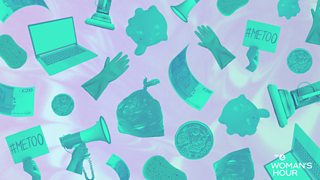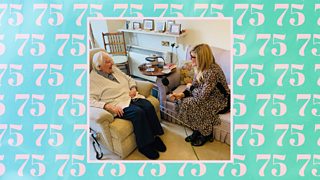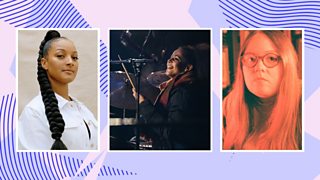Four black female trailblazers you should know about
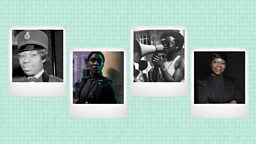
The UK’s been celebrating Black History Month this October. Here are four of the inspiring women you can hear about in the Woman’s Hour archives…
Sislin Fay Allen - the UK’s first black female police officer
Sislin Fay Allen joined the Metropolitan Police in London in 1968. She was working as a nurse in Queen’s Hospital in Croydon when she saw an advert in the newspaper.
“The Met received hate mail because she had joined the police,” Commander Alison Heydari told Woman’s Hour. She’s currently the most senior black woman police officer in England and Wales, and while she never got to meet Sislin she found out all about her after joining the police 20 years ago.
“I can only imagine some of the interactions that she must have had with members of the public. But she stood by her decision to join and in that way she is absolutely inspirational. Sislin must have been such a brave person to have joined the Metropolitan Police at that time.”
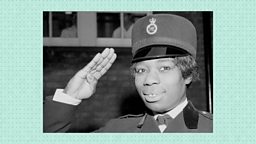
Sislin had a varied career, going from Fell Road Police Station in Croydon to the Missing Persons Bureau at New Scotland Yard, before ending up at Norbury police station. She resigned in 1972 and continued her career in the Jamaica Constabulary as a police officer.
“Sislin would have been sad to read [the experiences of some black police officers], but she would have been impressed as well to see the amount of work that's going into addressing these issues,” said Heydari.
“It's not only the issues around race, but also how we can retain female talent and black female talent within policing. There's a lot going on in the Met and nationally now that there’s a focus on looking at how we can really support those officers.”
Lashana Lynch – the first black female 007
London-born actor Lashana Lynch made history this year by taking on the role of 007 in the newest installment of the James Bond franchise, No Time To Die. Her character Agent Nomi inherits the codename after Bond retires.
“I didn't foresee this coming,” Lashana told Woman's Hour earlier this month.
“I think everything else in my career I've tried to manifest and say: ‘I really want to do this play’, ‘I really want to be part of the Marvel Universe’. They all happened quite naturally over a course of years of trying really hard. But this came out of nowhere.”
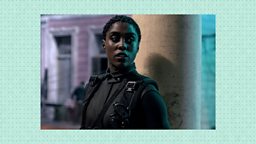
“It's really important for me for young girls to see that even though there was a seemingly powerful woman on screen playing a powerful role in a powerful organisation, her power comes from somewhere else. It comes from insecurities and anxiety, questioning yourself, a lack of confidence, a lack of self-worth,” she told Emma Barnett.
“When you work on those things, you could turn out to be an agent, once you channel all the gripes in life, the environmental and social cultural things that weigh us down.
“I wanted to create a role that people could be inspired by. I felt confident that this character wasn't going to be standing behind anyone. She was going to be there in her own right, doing her own thing, busting balls. And I love it. Through this character, I hoped that we were pushing the needle forward.”
Civil rights campaigner Olive Morris
Olive Morris was a Black British feminist and civil rights campaigner in South London in the 1970s. She died of cancer aged 27 in 1979.
Researcher and lecturer Angelina Osborne and Olivette Otele, who is a professor specialising in Black female history, told us about what inspired Olive to get involved in activism in the late 60s and early 70s and her work with the Squatters' Rights campaign in Brixton, South London.
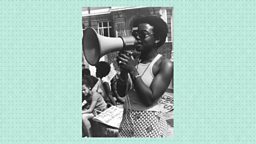
“Olive had witnessed a Nigerian diplomat being arrested and beaten up by the police,” said Angelina Osborne. “He was driving a very nice car and the police assumed that he had stolen it. 17 year old Olive intervened and got beaten up herself and arrested for coming to his aid. She was charged with assaulting a police officer. I like to believe that was the moment that she became involved in activism.
“She also noticed there were so many people, homeless or waiting for housing, and there were lots and lots of empty houses around Brixton, where she lived and grew up. So she became quite adept, quite skillful at learning how to break into houses and how to set them up.”
“She was defending not just women's rights, but black women's rights,” said Olivette Otele. “And she was ferocious about the kind of triple jeopardy black women face, meaning race, gender and class. She fought against inequality wherever she could.
“She was powerful. She was an activist. She was somebody who was able to combine scholarly activism with grassroots activism. She was defending all women's rights. And she focused on actually making a difference within her community. She showed that you can make a difference wherever you are, at any point in your life.”
Lawyer Pauline Campbell
Pauline Campbell grew up in 1970s London as a first generation, immigrant child of Caribbean parents. She left school with virtually no qualifications after being told she wasn’t clever enough for university. But at 33, when she was working as a housing benefits officer, she got a place at university to study law.
Even though she was ‘black, old and a woman’ - her words - she kept going and qualified as a lawyer when she was 41. Now she's an award-winning local government lawyer and joined Woman’s Hour to talk about her newly published book Rice and Peas and Fish and Chips.
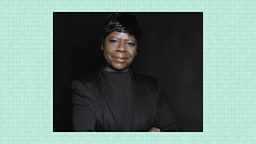
“I thought it was just me not being clever enough. But it wasn't about that at all. There was a lot more to it than that. When my teacher told me I wasn’t ‘university material’, my dad told me not to believe her. I chose to believe my teacher, because I'd never had a black teacher. I’d never seen a black MP. I'd never had a black doctor,” Pauline told Emma Barnett.
“There is a preconceived idea about Caribbean children in schools and their ability. There are low expectations when it comes to Caribbean children so if their grades aren't that good, the reasoning behind that is they're just not as capable, which is soul destroying for somebody who is capable.
“What I don't want is for a 14 or 15-year-old child to be like me, I want them to read this book and say: ‘Hold on a minute, I'm not going to waste 16 years of my life in believing what I'm told. I'm going to believe in myself from the start, irrespective of what's around me, irrespective of the processes that are in place.’ It's up to you to do what you need to do.”
Head to ±«Óătv Sounds to catch up on any Woman’s Hour episodes you may have missed and follow us @bbcwomanshour on and .

